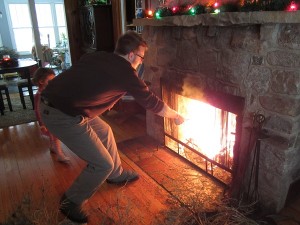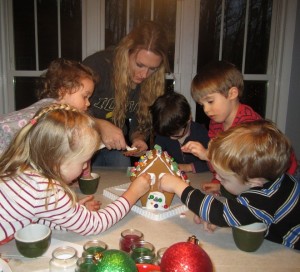Back when I was a child, school teachers taught us about the origin of fire and how cave men (who descended from apes) figured out how to rub sticks together to make it. Eventually they used fire to stay warm, roast meat, light darkness, and in other ways make life better.
The Bible taught that the first people, Adam and Eve, didn’t descend from apes at all but were created by God. Most likely they were given a knowledge of tools and, through God’s instruction, knew what fire was and how to start one. I’m not sure they had much use for it at first, though, since Eden’s climate was perfect. (They were happily naked, and extra warmth apparently wasn’t needed.) As for cooking, fresh fruits and vegetables were delectable without being roasted, so meal prep didn’t need fire, either.
Once sin occurred, however, fire came in handy. Animal sacrifice became the norm, necessitating burnt offerings. And since they’d been given permission to eat meat by that time, they also needed fire to cook it.
As I’m writing this, I’m appreciating fire in a different way, enjoying the dancing flames in our fireplace. They’re warming the room and creating a lovely ambiance. But fire can also get out of control, doing major damage to people, places, and things.
Last weekend we used fire in a Christmas season tradition when we burned our tree. The children gingerly extracted ornaments through prickly branches while Hans and I removed the lights. When the “snippers” and a saw came out, small fry fascination grew. And when Hans lit the heap of branches he’d stuffed into the fireplace, the kids went speechless.
A couple of times, as fiery branches toppled out onto the hearth, Hans and I had to move fast to regain control. But all in all it was a spectacular display.
Fire produces high heat, and high heat can do wonderful things: sterilize a needle, bake a chicken, light a scented candle, power a furnace, or roast a marshmallow. But like all positive things, if allowed to escalate, it can hurt and destroy.
God has given many good gifts to mankind, and every one of them can be taken to unhealthy, harmful extremes. In his hands, though, fire (as in a “fiery trial) can refine us, cleanse us, give birth to a passion, or be a symbol of God’s presence. In special cases, he uses fire as judgment, calling himself “a consuming fire.” (Hebrews 12:29) His judgment is always righteous, perfectly meted out to the situation, but that doesn’t mean it doesn’t hurt. Interestingly, though, God has also given us water powerful enough to squelch any fire: the living water of Jesus, i.e. salvation. And when we receive this gift, the Spirit comes to dwell within us.
BTW, that same Spirit arrived to the very first believers as (guess what) a fire.
”Whoever believes in me, as Scripture has said, rivers of living water will flow from within them.” By this he meant the Spirit.” (John 7:38)







